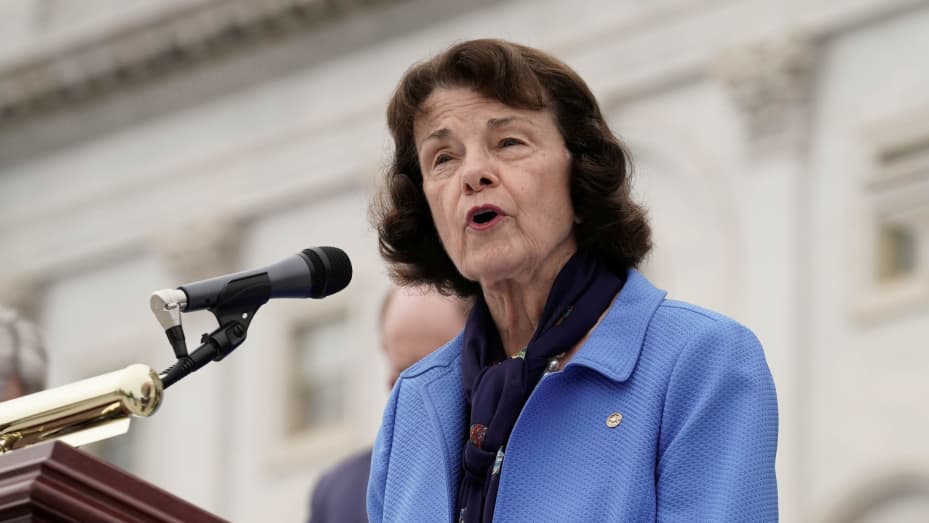In the corridors of digital governance, where the cyber tides ebb and flow, a symphony of voices recently rose to a crescendo as twenty-seven Senate Democrats penned a letter. Their collective missive, a clarion call to the Federal Communications Commission (FCC), echoed with a demand – the reinstatement of Title II common carrier regulations, a harmonious refrain known to the public as “net neutrality.”
This crescendo came after a prolonged hush, a 2-2 deadlock between Republican and Democratic FCC commissioners, which, like a silent pause in a musical composition, seemed to linger indefinitely. Then, a new entrant, a Democratic commissioner by the name of Anna Gomez, broke the impasse with her confirmation, filling the air with possibilities once more.
In this digital symphony, the letter’s signatories read like a distinguished ensemble, each senator playing their part. Dianne Feinstein, Ron Wyden, Cory Booker, Elizabeth Warren, Amy Klobuchar, Mazie Hirono, and others took to their instruments, their words, to orchestrate a call for action.
The heart of their melody was a plea to reclassify broadband as a telecommunications service under Title II of the Communications Act. To them, this reclassification was more than just notes on a page; it was a way to protect consumers from the discordant practices that could arise online. It was a means to ensure that the internet remained a stage accessible to all, where websites could perform without fear of being silenced or slowed down.
The COVID-19 pandemic, like a sudden crescendo, had spotlighted the essential role of broadband. Americans now relied on it for education, healthcare, commerce, and connection. In a world where digital access was as vital as water and electricity, the senators sought to ensure that the FCC’s regulatory classifications resonated with the significance of this lifeline.
Their melody lamented the previous administration’s vote to repeal net neutrality protections, a dissonant chord that had resonated through the halls of digital discourse. Net neutrality, they argued, was the key to preserving an internet that was both free and open. It ensured that Internet Service Providers (ISPs) couldn’t play the role of gatekeepers, a role that could compromise the very essence of an open web.
But the senators’ symphony did more than just harmonize around net neutrality. It recognized that the internet was a complex composition, with many intricate movements. The improper classification of broadband as an information service had, like a cacophonous solo, muddied the music. It had led to practices that harmed online users and hindered new entrants into the broadband world.
Only through the majestic Title II classification could the FCC conduct its proper oversight, silencing the discordant practices of broadband providers. This reclassification, they argued, was essential not only to protect net neutrality but also to maintain network resiliency, national security, service quality, and accessibility.
Their symphony ended with a crescendo, an appeal to Chairwoman Rosenworcel to protect the free and open internet that was the lifeblood of the digital age. Their voices, united in harmony, resonated with a plea to reclassify broadband and keep the music of the internet flowing freely.
In this grand digital symphony, the battle for net neutrality continued, each note echoing through the digital landscape, waiting for the final crescendo when the FCC would make its decision.


